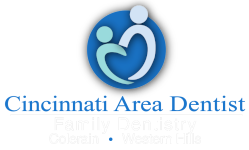| Our Policy as of 3/20
In light of the new developments related to Coronavirus, COVID19, we would like to share our office’s position and actions in response to this pandemic. I apologize in the delay of this message as facts have been changing hour by hour. We will be closed from Monday March 16th through April 6th. We will have limited hours for emergency care only. If you are scheduled, we will be contacting you ASAP. We will work with you to reschedule your appointment asap. All cleaning appointments will be cancelled and treatment appointments will be case by case basis depending on emergency situation. We will continue our use of universal precautions, which include use of our masks, gloves, surface barriers and disinfection procedures as per OSHA and CDC guidelines. That being said, with the mask and glove shortages, there may come a time where the office may have to close or limit treatment to emergency care only. At this time we ask for your cooperation with the following practices to reduce exposure and stay healthy:
We appreciate your understanding and cooperation as we try to navigate this unprecedented situation. Sincerely, Dr. Ruchika Khetarpal Colerain and Western Hills Family Dentistry |
| SYMPTOMS
COVID-19 symptoms are similar to the cold or flu, and may take up to 14 days to appear after exposure to the virus. People with fever, cough and difficulty breathing should seek medical attention. Be vigilant as severe cases may lead to pneumonia, kidney failure or death.
|
| HIGH RISK
Those at higher risk of getting very sick from COVID-19 include seniors, and people who have serious pre-existing medical conditions including:
People at higher risk for serious illness and even death from COVID-19 should take extra precautions like:
High risk people should contact their healthcare provider early, even if their illness is mild. |
| PREVENTION
The most effective ways to protect yourself and others against COVID-19 are to frequently clean your hands, cover your cough with the bend of elbow or tissue, and maintain a distance of at least 3 feet from people who are coughing or sneezing. The WHO and CDC advises the following prevention methods: Wash Hands Frequently Practice Respiratory Hygiene Maintain Social Distancing Avoid Touching Eyes, Nose & Mouth Clean & Disinfect Animal Proximity Precautions Animal Consumption Mild Symptoms Seek Medical Care Early |
| TESTS & TREATMENT
Testing People at higher risk for serious illness from COVID-19 should contact their healthcare provider early, even if their illness is mild. Treatment Possible vaccines and some specific drug treatments are under investigation. They are being tested through clinical trials. WHO is coordinating efforts to develop vaccines and medicines to prevent and treat COVID-19. |
| MORE INFO
LAST UPDATED: March 16, 2020 Centers for Disease Control & Prevention (CDC) World Health Organization (WHO) |
| CONTACT US
If you have questions or concerns, please call us at: |


